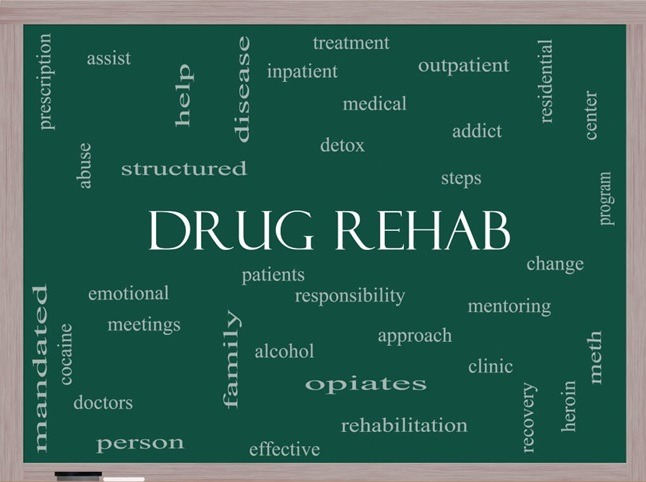Any individual who is struggling with a drug or alcohol addiction will benefit from seeking treatment at a rehabilitation clinic. For people who have struggled with addiction, achieving a successful recovery is extremely challenging. The therapeutic environment of rehabilitation offers the necessary support for a successful recovery.
A patient’s individualized treatment plan is utilized in addiction therapy to help them discover and overcome issues that caused them to become addicted in the first place. A rehabilitation clinic’s primary purpose is to aid patients in overcoming addiction, but there is a myriad of additional benefits to receiving therapy.
After completing addiction therapy, patients will have learned not only how to conquer their addiction but also how to live a more active, healthy, and happy life as a result of their participation in the treatment program. You should check out this link https://www.mayoclinic.org/diseases-conditions/mental-illness/in-depth/intervention/art-20047451.
The framework that is provided by a rehabilitation facility is one of the most significant advantages of seeking treatment there. To assist patients in staying engaged as well as avoiding distractions, rehabilitation programs place a significant emphasis on the development of daily routines that are jam packed with productive activities and counseling sessions.
Patients will receive time to internalize what they are learning during planned activities, and they are given time to do so during rest intervals. Because it is vital for patients to not only learn new coping skills, but also put them into practice in a safe environment throughout the day, they are permitted to sit down, speak, and relax frequently during the day during breaks and in the evenings.
To cope with their substance addiction, people develop behaviors and ways of thinking that assist them to cope with their addiction but also prevent them from developing healthier habits. The ability to stick to a routine becomes critical to achieving success when it comes to changing self-destructive habits with healthy ones that encourage recovery.
After completing their treatment program, patients should adopt a basic daily routine that prioritizes sobriety while also keeping a healthy, balanced lifestyle that they may continue after they have completed their rehab program. Continuing to practice the disciplined techniques of living that you learned in addiction treatment programs will reduce the amount of pressure you will feel when you return home to seek relief from your issues through drugs or alcohol.
Setting new goals
For those that have a history of substance addiction are more prone than the general population to have poor self-care and discipline habits, as compared to those who do not have such histories.
Along with the chores that are necessary for the recovery process, a person’s self-care routine should include other activities that are important to the process. There have been several instances where individuals have attempted to set goals on their own and failed miserably because they did not approach goal setting with the proper mentality or determination.
People’s dedication to changing their habits is gradually eroded by the never-ending loop of attempting to do so and failing consistently. As a result, many give up and relapse into their old, harmful patterns of behavior. The rehabilitation process may provide a better understanding of how to set short- and long-term healing goals for oneself, as well as how to achieve those goals once you have completed them. Find out more about this here.
Once you complete your rehab, you will definitely know how to manage anxiety, avoid, and manage triggers, prevent relapse, deal with stress in healthy ways, and develop new thought patterns that will help you succeed in your life once you have graduated from the program.
Developing new habits in rehab can help you cope with the day-to-day challenges of recovering from addiction following treatment and will also teach you how to deal with what caused your substance usage in the healthiest way possible. Having healthy habits are always the best ways to have your mind preoccupied which will then divert your thoughts from using.
Another advantage of coming to rehab is that treatment programs include a strong emphasis on health and nutrition, which is healthy in and of itself, as previously said. The use of illicit drugs and alcoholic drinks on a regular basis deprives the body of critical nutrients and minerals.
A poor diet can cause headaches, sleep problems, and tiredness, all of which can impair a person’s capacity to heal completely. It is vital to have appropriate nourishment to have a successful recovery. In addition to improving mood and overall health, eating a well-balanced diet can assist to reduce drug cravings as well as aid in the prevention of relapse by decreasing hunger.
Individuals who are healing from sickness or injury can get a range of advantages from physical activity. Treatment centers usually provide patients with opportunities for physical activity such as tennis, yoga, swimming lessons, and other forms of exercise to aid them in recovering a fit and strong body after a period of addiction. It is quite beneficial to be able to quantify and assess one’s progress when engaging in physical activity.
As a result of this experience, those in an addiction rehab facility learn that they no longer require alcohol or drugs to be happy about themselves. Because their physical body is improving, it is possible that they will use this as an example of how to keep a healthy body and mind without the need for chemical stimulants such as medications in the future.
The only way for people who are suffering from addiction to restore their confidence is for them to engage in physical activity and replace their self-destructive behaviors with healthy ones. When patients engage in daily bouts of physical activity, they can fill the gaps in their schedules that were previously occupied by thinking about and obtaining their prescription medicine.
Patients who have established a healthy relationship with food and exercise can apply the nutritional principles that they have learned during therapy to their everyday lives after they return home from treatment.

